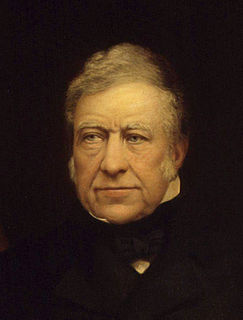A Quote by Jean-Baptiste Say
capital cannot be more beneficially employed, then in strengthening and aiding the productive powers of nature.
Quote Topics
Related Quotes
The idea that the profits of capital are really the rewards of a just society for the foresight and thrift of those who sacrificed the immediate pleasures of spending in order that society might have productive capital, had a certain validity in the early days of capitalism, when productive enterprise was frequently initiated through capital saved out of modest incomes.
The financial doctrines so zealously followed by American companies might help optimize capital when it is scarce. But capital is abundant. If we are to see our economy really grow, we need to encourage migratory capital to become productive capital - capital invested for the long-term in empowering innovations.
It is time that capital and labor realized that their interests are really comutual, as interdependent as the brain and the body; time they ceased their fratricidal strife and, uniting their mighty forces under the flag of Progress, completed the conquest of the world and doomed Poverty, Ignorance and Vice... Unless labor is employed, capital cannot increase - it cannot concentrate. Unless property rights are held inviolable and capital thereby encouraged to high enterprise, labor is left without a lever with which to lift itself to perfect life and must sink back to barbarism.
A woman’s moral influence is nowhere more powerfully felt or more beneficially employed than in the home. There is no better setting for rearing the rising generation than the traditional family, where a father and a mother work in harmony to provide for, teach, and nurture their children. Where this ideal does not exist, people strive to duplicate its benefits as best they can in their particular circumstances.
Capitalism drives the employers to do their worst to the employed, and the employed to do the least for them. And it boasts all the time of the incentive it provides to both to do their best! . . . The reason the Capitalist system has worked so far without jamming for more than a few months at a time, and then only in places, is that it has not yet succeeded in making a conquest of human nature so complete that everybody acts on strictly business principles.
If, for example, each of us had the same share of capital in the national total capital, then if the share of capital goes up it's not a problem, because you get as much as I do. The problem is that capital in capitalist countries is very heavily concentrated, especially financial capital. So then if the share of income from that source goes up, that actually exacerbates inequality.


































